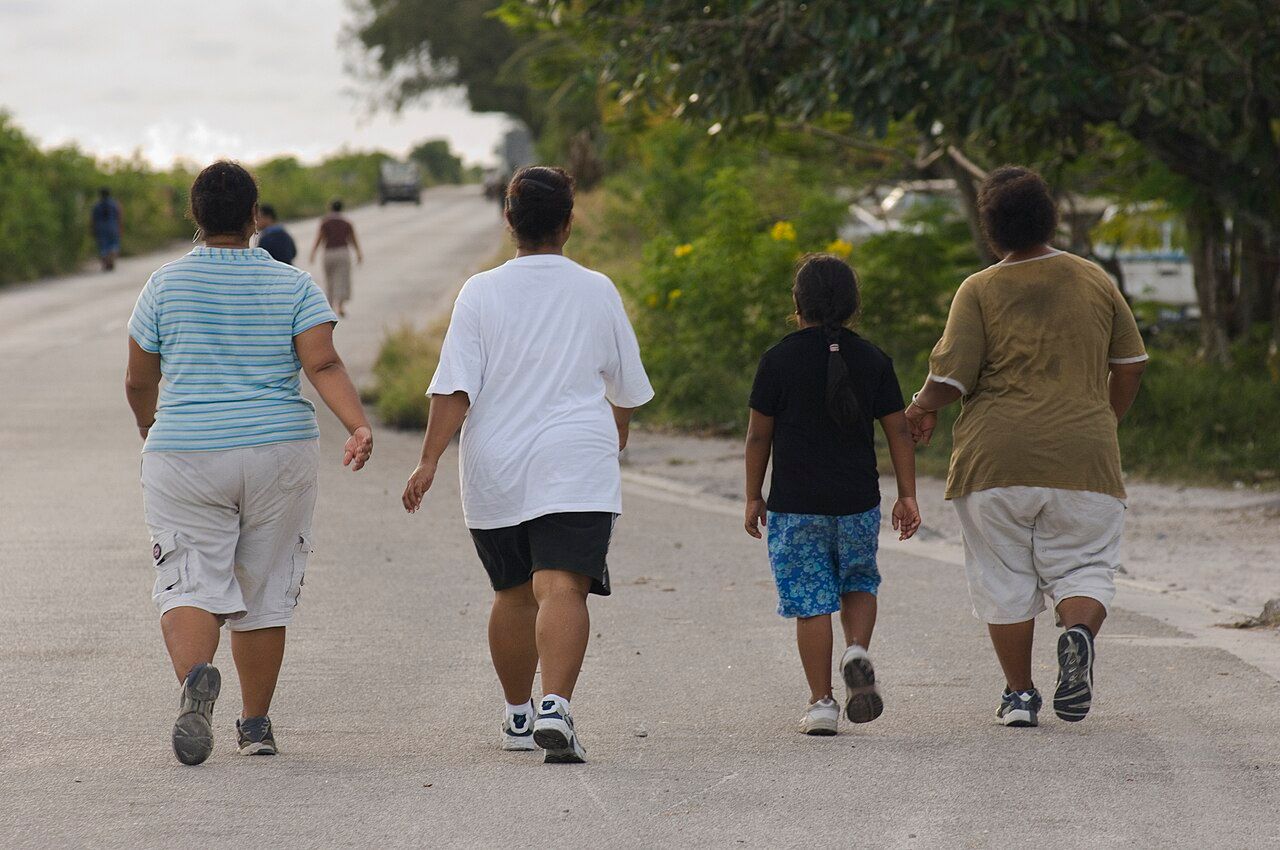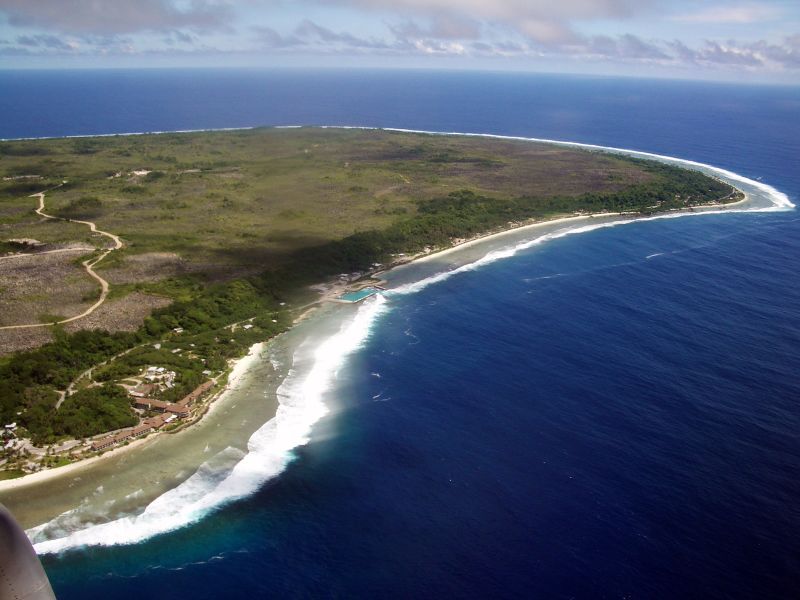

Nauru President David Adeang, left, and Australian Prime Minister Anthony Albanese have signed a $2.78 billion deportation deal.
Photo/Pacific Islands Forum Secretariat/Cook Islands Ministry of Foreign Affairs & Immigration
Nauru and Australia's $billion deportation deal puts lives at risk, warn rights advocates
The United Nations and human rights groups are urging the Australian government to halt the controversial agreement with Nauru.




Law expert: US boat strike controversy a lesson for the Pacific

Heartland XV coach reflects on emotional return to Sāmoa


Jai Opetaia drops German in brutal KO, keeps titles and calls for unification fights


Law expert: US boat strike controversy a lesson for the Pacific

Heartland XV coach reflects on emotional return to Sāmoa
The United Nations and human rights advocates are calling on Australia to stop the deportation of a man to Nauru.
This follows Nauru's agreement to accept hundreds of people from Australia in exchange for an upfront payment of A$400 million (NZ$445m).
Australia's Home Affairs Department announced on Wednesday that the deal with Nauru includes A$70m (NZ$77.88m) per year, potentially costing Australian taxpayers A$2.5 billion (NZ$2.78b) over 30 years.
The people involved, known as the NZYQ cohort, include 354 non-citizens in Australia who were previously held in immigration detention because their visas were cancelled due to “character grounds”.
But they cannot return to their home countries because they risk persecution, lack citizenship, or their countries simply refuse to take them back.
Human rights advocates are worried about the group being sent to Nauru for 30 years, fearing they will face hostility since they have been labelled “violent” and “appalling” by the Australian government.

Nauruans were divided by the agreement, with some raising concerns about safety and social harmony and others criticised their country’s exploitation as a “dumping ground” or “prison island” by Australia. Photo/AusAID/Lorrie Graham
Three men face deportation under the agreement, but their removal is delayed due to ongoing legal challenges.
Last week, the Australian government finalised a deal worth A$400 million (NZ$445m) with Nauru to send 280 people to the Pacific nation. Canberra has passed new legislation that would reduce the procedural rights of those facing deportation.
The plan to forcibly send the NZYQ group, along with potentially thousands more people under the new legislation, is causing some resentment among Nauruans.

Located 4000 kilometres north of New Zealand, Nauru has a population of 11,000. Photo/Asylum Seeker Resource Centre
One of the three men facing deportation has filed a complaint with the United Nations Human Rights Committee. He argues that sending him to Nauru would violate international law, as he could face death or mistreatment there.
The committee is reviewing his case and has asked Australia to pause his deportation. Advocates say that instead of creating a fair system for refugees, the Australian government has introduced new laws allowing it to pay other countries to take non-citizens, including refugees.
Critics say that these laws don't provide adequate protection against harm or deportation to dangerous situations. The legislation denies basic rights to those facing deportation, stating that the usual legal protections wouldn't apply in such cases.
In a statement, Human Rights Commissioner Lorraine Finlay says the legislation takes away a fundamental right in a fair society - the opportunity to be heard.
There have been troubling reports about refugees and asylum seekers who were forced to relocate to Nauru, with some suffering medical neglect and committing suicide. Research by Human Rights Watch has found that those sent to Nauru experienced major abuse and inhumane conditions.
Advocates claim this deportation plan could put many more lives at risk, continuing a history of harm caused by Australia’s strict immigration policies, which they say violate international law.
Advocates say it is not too late for Australia to reconsider its plan and prevent further abuses. It is unclear when the high court will rule on the man's case, but the government has agreed to postpone his deportation until the legal issues are resolved.
Nauru is a small island with about 11,000 residents, and its people mostly work for the government, which relies heavily on Australian aid.
But opinions among Nauruans on the agreement have been mixed, with some worrying about safety and maintaining social harmony, while others feel their country is being used unfairly as a “dumping ground” or a “prison island” by Australia.
Nauru's President, David Adeang, has defended his government's decision, saying that those being sent to Nauru have already served their time. In a public address, Adeang says, “Australia is trying to send them back to their country, but they are not wanted back home. So we accepted them."
He says the goal remains to repatriate these individuals to their home countries when conditions allow.